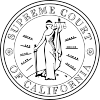| This article relies largely or entirely on a single source. Relevant discussion may be found on the talk page. Please help improve this article by introducing citations to additional sources. Find sources: "People v. Murray" 1859 – news · newspapers · books · scholar · JSTOR (March 2022) |
| People v. Murray | |
|---|---|
 Supreme Court of California Supreme Court of California | |
| Decided 1859 | |
| Full case name | The People v. Murray |
| Citation(s) | 14 Cal. 159 |
| Holding | |
| To charge a defendant with a crime, the defendant must have made an attempt to commit the crime itself; acts performed in preparation of the crime are not sufficient. Judgement reversed. | |
| Court membership | |
| Chief Justice | Stephen Johnson Field |
| Associate Justices | Joseph G. Baldwin, Warner Cope |
| Case opinions | |
| Majority | Field, joined by Baldwin, Cope |
People v. Murray, Supreme Court of California, 14 Cal. 159 (1859), is a criminal case that distinguished between preparation and attempt. The court held that when a defendant acts in preparation to commit a crime, in order for these acts to be an attempt, and not mere preparation, the acts must be a final step that would consummate the crime, but for intervention by forces outside the control of the defendant. Murray was charged with attempt to incestuously marry his niece.Murray declared an intention to marry his cousin, then made many numerous preparations to do so, including eloping with his niece, and requesting a witness to go to the magistrate wedding officer to perform the ceremony.
The court found these were merely "preparatory to the marriage; but until the officer was engaged, and the parties stood before him, ready to take the vows... it cannot be said, in strictness, that the attempt was made. The attempt... must be manifested by acts which would end in the consummation of the particular offense, but for the intervention of circumstances independent of the will of the ."
References
- ^ Criminal Law - Cases and Materials, 7th ed. 2012, Wolters Kluwer Law & Business; John Kaplan, Robert Weisberg, Guyora Binder, ISBN 978-1-4548-0698-1,
This article relating to case law in the United States or its constituent jurisdictions is a stub. You can help Misplaced Pages by expanding it. |